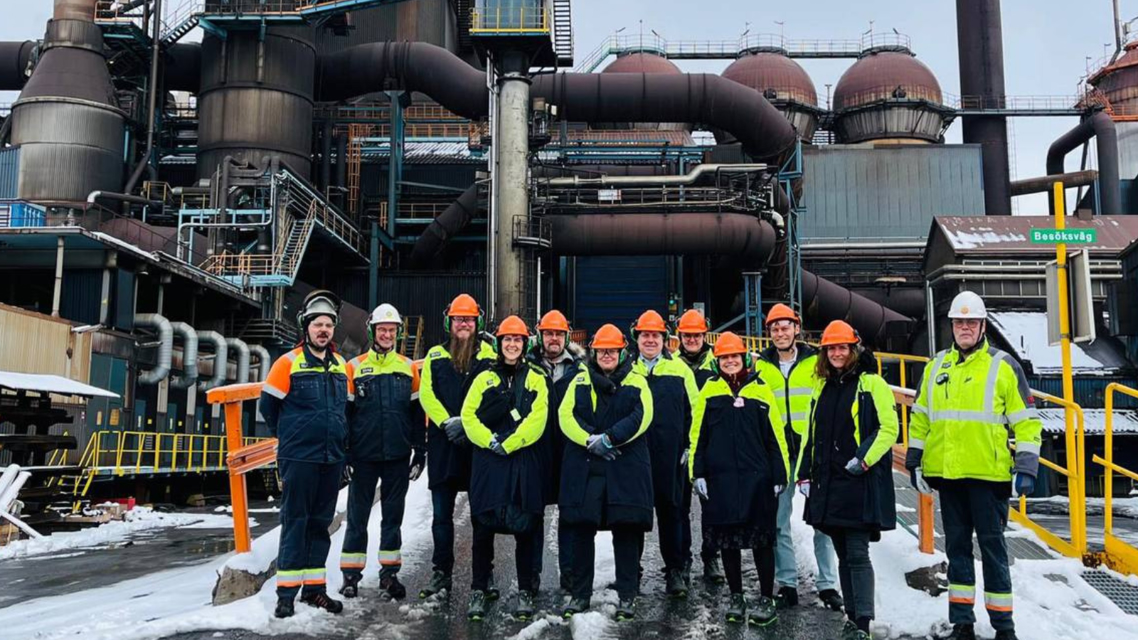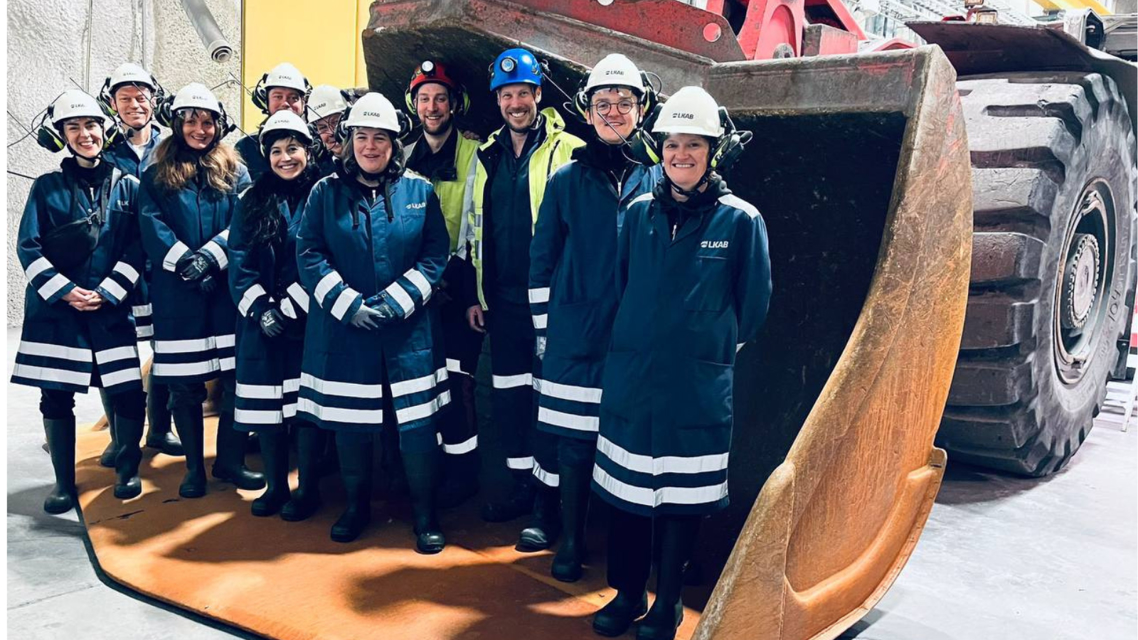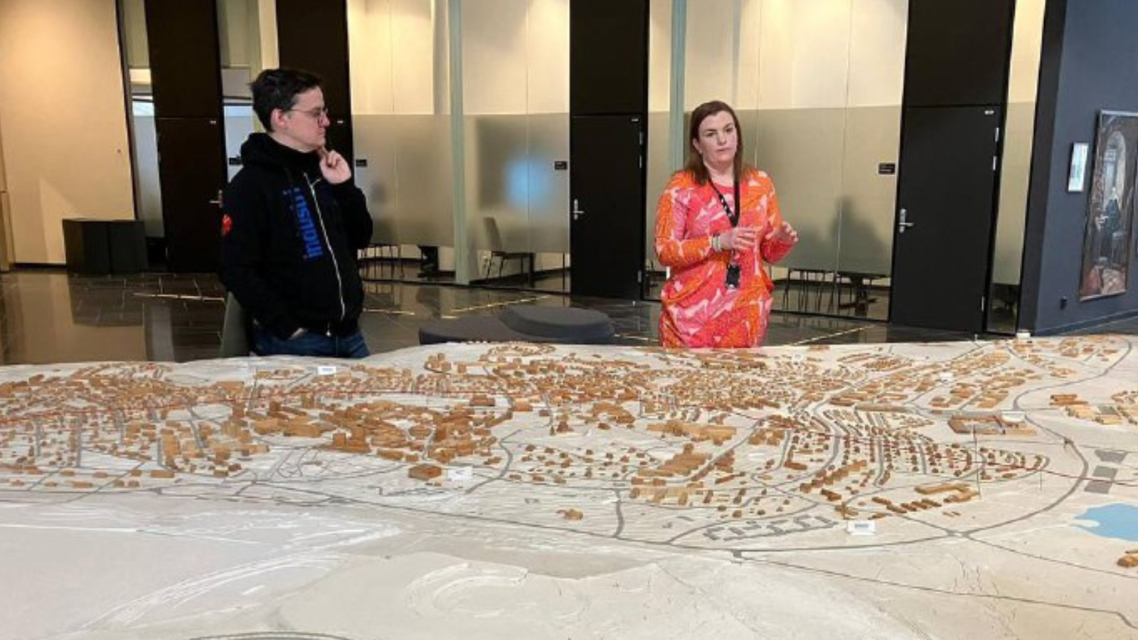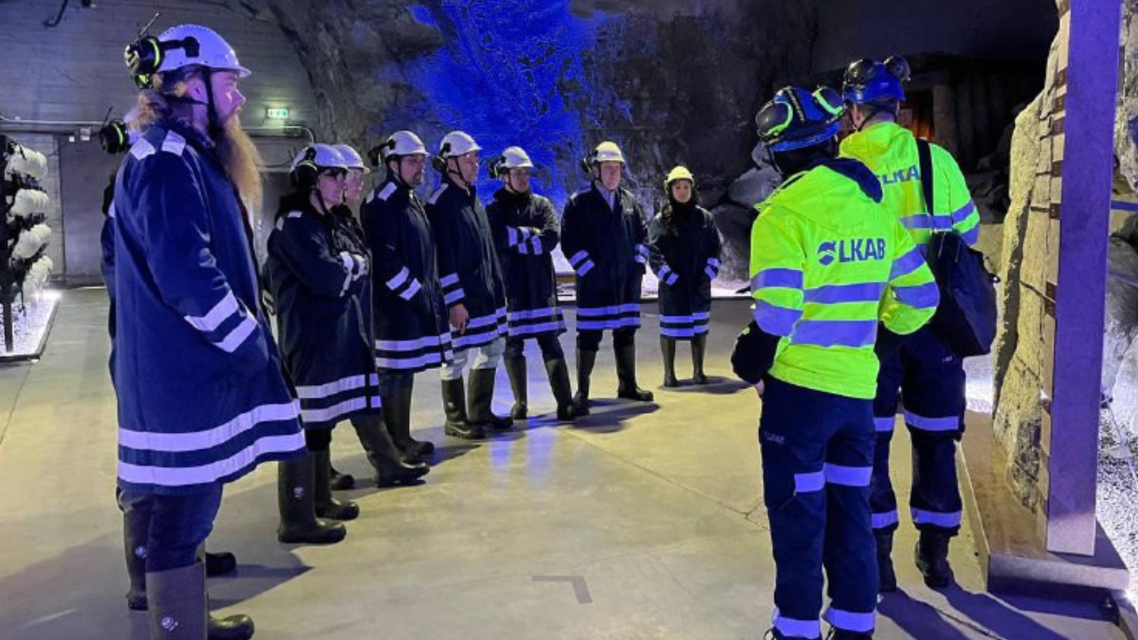The study trip was the initiative of IF Metall, in collaboration with Unionen and Engineers of Sweden. The group listened to the hopes and concerns of local trade unionists and workers surrounding their current jobs, potential job creation, working conditions, and health and safety at the workplace.
“This visit has helped us experience first-hand what is happening in this particular region to this remarkable workforce and during the transition. There is a clear belief in the workers’ future at SSAB and LKAB, and at the research platform Hybrit, and that the investments in the green transition are credible. The companies’ investments contribute both to a strengthened degree of self-sufficiency and increased competitiveness in Europe. At the same time, new industrial jobs have been created with increased climate benefits.” says Judith Kirton-Darling, industriAll Europe General Secretary.
SSAB, which has a turnover of €12 billion and 15,000 employees, decided earlier this month to invest in a carbon dioxide-free steel plant worth €4.5 billion in Luleå. This corresponds to more than one third of the company's annual turnover or 4% of Sweden's state budget for 2024.
The company has taken its idea to a full-scale production facility in nine years. In total, SSAB’s investment is estimated to contribute to reduced carbon dioxide emissions by 4 million tons in 2030. This corresponds to a 7% reduction of all of Sweden's carbon dioxide emissions.
Experience from the research and development platform, Hybrit, is the basis for the large-scale investment that is taking place in the transition from coal-based to fossil-free steel production at SSAB.
During the visit to LKAB, the industriAll Europe delegation were told about the new deposit in the Per Geijer ore body that has been prospected. This is Europe's largest deposit of rare earth metals. The ore in Per Geijer has the potential to contribute to Europe’s supply of critical earth metals. This is important for the electrification of the automotive industry. It is also significant from a European perspective to contribute to an increased degree of self-sufficiency within the EU when global challenges affect the reliability of the global supply chain.
The management at both SSAB and LKAB in Kiruna emphasised, in connection with the study visit, the importance of cooperation with the local trade unions. The trade unions have been involved in pushing for change and have set demands for the skills development of the employees, which has benefited both the companies and the employees.
“This week’s study visit has demonstrated that the investments in industry in northern Sweden can inspire other industrial companies in Europe to strengthen cooperation locally between trade unions and employers”.
“The industrial transition is significant and also contributes to strengthening the competitiveness of Europe's industry. The conditions for success increase with a strong social dialogue between employers and employees. This in turn contributes to good working conditions but also to strengthened competitiveness in companies and increased conditions for reaching the EU's climate goals. The investments taking place in Sweden, are proof that the green transition is real.” added Isabelle Barthès industriAll Europe Deputy General Secretary.




